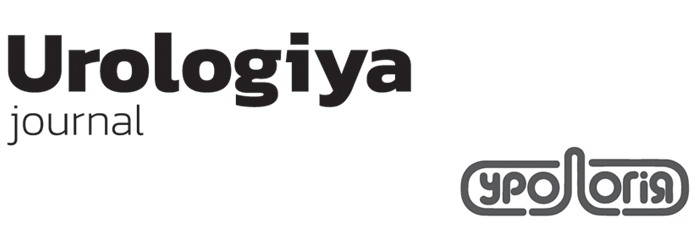S.A. Vozianov, D.V. Koval, A.V. Rudenko, N.I. Zheltovska
Determination of dependence of lithogenetic processes in kidneys on biologic specificities, found in urine of ritualistic pathogenic microorganisms
The aim of the work was to determine the role of factors of infective genesis of various taxonomic belonging in the development both of inflammatory process in kidneys and lithogenesis with defining of mineral composition of the removed concrements.
The data on incidence of determination and species spectrum of microorganisms in 59 patients with calculous pyelonephritis compared to the structure of the removed concrements are analyzed.
In accordance with the species spectrum of pathogens, the patients were shared into three groups: group I - 25 pts (42.3%) with defined urinary ureaplasma and enterobacteria (Proteus spp., E. coli - in 15 pts.). A separate group of patients (Ia) had ureaplasma in monoculture. Group II consisted of 24 pts. (40.6%) with urolithiasis free of bacteriuria. Group III comprised 10 pts. (16.9%) with present uropathogenic microflora and lack of ureaplasma.
In the group I urinary pH index was 7.07±0.05 but by the composition dominated phosphates (56%) and oxalates (44%). In the group Ia with monoureaplasmic infection were found: phosphates - 60% and 40% - oxalates. In the group II the mean urinary pH was 6.1 ± 0.03 and the mineral composition was 18 (75%) oxalates and 6 (25%) urates. In the third group the urinary pH was 6.1± 0.03 and the mineral composition showed urates 40% and oxalates - 60%. The received data testify to the interrelation between pathogenetic spectrum of various taxonomic position found in urine and the mineral composition of concrements in the patients under study. One of the main risk factors of urolithiasis is the urinary pH index which clearly differentiates the precipitating processes of lithogenetic salts by their physico-chemical indexes. The alcaline reaction of urine in patients of group I is the condition for precipitation of calcic and magnesium salts of phosphoric acid, that coincides with the determined composition of the removed concrements. Exactly ureaplasmas and protei, due to the high urease activity in spite of various taxonomic position, contribute to the stable alkaline pH index in urine >7.0.
Prescription of the adequate complex untirecurrent treatment for patients with urolithiasis improves the clinical course and promotes the decrease in incidence of recurrent lithogenesis - up to 5%.

